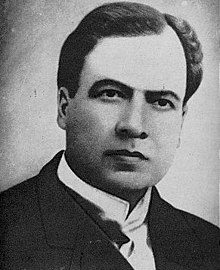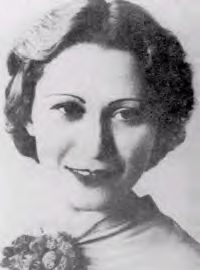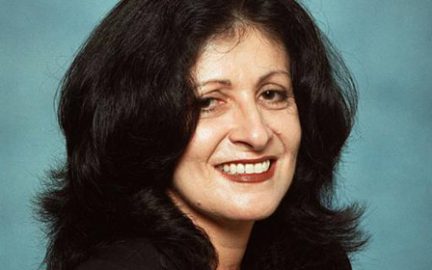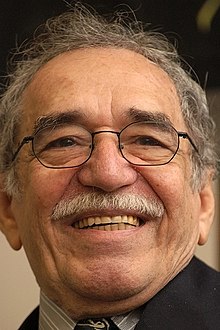
Gabriel García Márquez
“What matters in life is not what happens to you but what you remember and how you remember it.”
Gabriel José de la Concordia García Márquez was a Colombian novelist, short-story writer, screenwriter and journalist. Considered one of the most significant authors of the 20th century and one of the best in the Spanish language, he was awarded the 1972 Neustadt International Prize for Literature and the 1982 Nobel Prize in Literature. He pursued a self-directed education that resulted in his leaving law school for a career in journalism. García Márquez started as a journalist, and wrote many acclaimed non-fiction works and short stories, but is best known for his novels, such as One Hundred Years of Solitude (1967), The Autumn of the Patriarch (1975), and Love in the Time of Cholera (1985). His works have achieved significant critical acclaim and widespread commercial success, most notably for popularizing a literary style known as magic realism, which uses magical elements and events in otherwise ordinary and realistic situations. Some of his works are set in the fictional village of Macondo (mainly inspired by his birthplace, Aracataca), and most of them explore the theme of solitude. Upon García Márquez’s death in April 2014, Juan Manuel Santos, the President of Colombia, called him “the greatest Colombian who ever lived
- A Very Old Man with Enormous Wings: https://www.ndsu.edu/pubweb/~cinichol/CreativeWriting/323/MarquezManwithWings.htm
- The Autumn Of The Patriarch: https://www.newyorker.com/magazine/1976/09/27/the-autumn-of-the-patriarch
- The Handsomest Drowned Man In The World: https://www.ndsu.edu/pubweb/~cinichol/CreativeWriting/423/MarquezHandsomestDrownedMan.htm
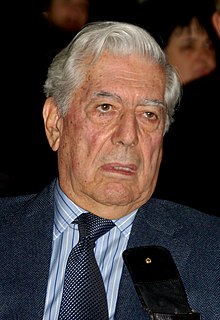 Mario Vargas Llosa
Mario Vargas Llosa
“If you are killed because you are a writer, that’s the maximum expression of respect, you know.”
Jorge Mario Pedro Vargas Llosa, 1st Marquess of Vargas Llosa, is a Peruvian writer, politician, journalist, essayist and college professor. Vargas Llosa is one of Latin America’s most significant novelists and essayists, and one of the leading writers of his generation. Some critics consider him to have had a larger international impact and worldwide audience than any other writer of the Latin American Boom. In 2010 he won the Nobel Prize in Literature, “for his cartography of structures of power and his trenchant images of the individual’s resistance, revolt, and defeat.” Vargas Llosa rose to international fame in the 1960s with novels such as The Time of the Hero , The Green House, and the monumental Conversation in the Cathedral . He writes prolifically across an array of literary genres, including literary criticism and journalism. His novels include comedies, murder mysteries, historical novels, and political thrillers. Many of Vargas Llosa’s works are influenced by the writer’s perception of Peruvian society and his own experiences as a native Peruvian.
Nobel Lecture: https://nobelmedia.akamaized.net/flashcontent/lecture_2010_lit_llosa_01_496.mp4
Interview: https://youtu.be/R5bGWoyzG0U
Paulo Coelho
“One is loved because one is loved. No reason is needed for loving”
Paulo Coelho is a Brazilian author. When Coelho was 38 years old, he had a spiritual awakening in Spain and wrote about it in his first book, The Pilgrimage. It was his second book, The Alchemist, which made him famous. He’s sold 35 million copies and now writes about one book every two years.
Blog: https://paulocoelhoblog.com/
Top 10 Best Books by Paulo Coelho: https://theculturetrip.com/south-america/brazil/articles/the-10-best-books-by-paulo-coelho-you-must-read/
 Dr. Manuel A. Alonso
Dr. Manuel A. Alonso
“And it may be worth nothing, because a bad habit is not removed with a sermon”
Dr. Manuel A. Alonso was a writer, poet and journalist. He is considered to be the first Puerto Rican writer of notable importance. As a writer, poet and journalist he derived his inspiration from anything that had to do with love and his country. Alonso cultivated his verses and gave them a touch festivality. Alonso was also, a member of the Liberal Reform movement in Puerto Rico and directed that organizations publication, “El Agente” (The Agent). Among his works are: “El Baile de Garabato” and “Puertorriqueño”. Dr. Manuel A. Alonso died in the City of San Juan on November 4, 1889. Puerto Rico has honored his memory by naming schools and public buildings after him.
Information about his work and life: https://www.revolvy.com/page/Manuel-A.-Alonso
Miguel Algarin
“Be unafraid to be a man who confronts himself.”
Miguel Algarín Jr. is a Puerto Rican poet, writer, co-founder of the Nuyorican Poets Café, and retired Rutgers University professor of English. Algarín has received four American Book Awards, including a Lifetime Achievement Award in 2009, becoming the first Latino to win the coveted honor. He was also given the Larry Leon Hamlin Producer’s Award at the 2001 National Black Festival.
Webpage: https://www.miguelalgarin.com/
Always throw the first punch: https://www.poetryfoundation.org/poems/150374/always-throw-the-first-punch-1980
 Sandra Cisneros
Sandra Cisneros
“I am a woman, and I am a Latina. Those are the things that make my writing distinctive. Those are the things that give my writing power.”
Sandra Cisneros is a poet, short story writer, novelist, essayist, performer, and artist whose work explores the lives of the working-class. Her classic, coming-of-age novel, The House on Mango Street, has sold over six million copies, has been translated into over twenty languages, and is required reading in elementary, high school, and universities across the nation.
Webpage: https://www.sandracisneros.com/
Interview: https://www.pbs.org/newshour/show/bookshelf-2
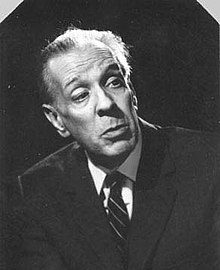 Jorge Luis Borges
Jorge Luis Borges
“Don’t talk unless you can improve the silence.”
Jorge Francisco Isidoro Luis Borges Acevedo was an Argentine short-story writer, essayist, poet and translator, and a key figure in Spanish-language and universal literature. His best-known books, Ficciones (Fictions) and El Aleph (The Aleph), published in the 1940s, are compilations of short stories interconnected by common themes, including dreams, labyrinths, philosophy, libraries, mirrors, fictional writers, and mythology. Borges’ works have contributed to philosophical literature and the fantasy genre, and have been considered by some critics to mark the beginning of the magic realist movement in 20th century Latin American literature.
Infinity according to Jorge Luis Borges: https://www.youtube.com/watch?v=mJeLGd3JV2I
A Wolf: https://www.poetryfoundation.org/poetrymagazine/browse?volume=161&issue=1&page=13
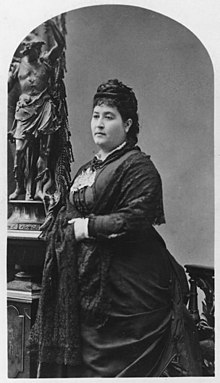
María Ruiz de Burton
“Much wisdom is learnt through tears, but none by forgetting our lessons.”
María Amparo Ruiz de Burton was the first female Mexican-American author to write in English. In her career she published two books: Who Would Have Thought It? (1872) and The Squatter and the Don (1885); and one play: Don Quixote de la Mancha: A Comedy in Five Acts: Taken From Cervantes’ Novel of That Name (1876). Ruiz de Burton’s work is considered to be a precursor to Chicano literature, giving the perspective of the conquered Mexican population that, despite being granted full rights of citizenship by the Treaty of Guadalupe Hidalgo, was a subordinated and marginalized national minority.
Biography: https://www.whatshernamepodcast.com/maria-ruiz-de-burton/
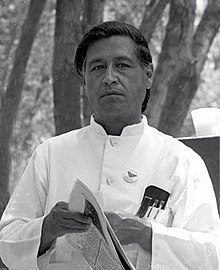 Cesar Chavez
Cesar Chavez
“If you really want to make a friend, go to someone’s house and eat with him… the people who give you their food give you their heart.”
Cesar Chavez was an American labor leader and Latino American civil rights activist. Along with Dolores Huerta, he co-founded the National Farm Workers Association, later renamed the United Farm Workers (UFW) union. Chavez became the best known Latino American civil rights activist, and was strongly promoted by the American labor movement, which was eager to enroll Hispanic members. His public-relations approach to unionism and aggressive but nonviolent tactics made the farm workers’ struggle a moral cause with nationwide support. By the late 1970s, his tactics had forced growers to recognize the UFW as the bargaining agent for 50,000 field workers in California and Florida. Chavez posthumously became an iconic “folk saint” in the pantheon of Mexican Americans. His birthday, March 31, is a federal commemorative holiday (Cesar Chavez Day) observed by several states in the US. He received many honors and accolades, while still living and after his death, including the Presidential Medal of Freedom in 1994.
Foundation: https://chavezfoundation.org/about-cesar-chavez/
Biography: https://www.history.com/topics/mexico/cesar-chavez
J ose Antonio Villarreal
ose Antonio Villarreal
José Antonio Villarreal was a Chicano novelist. Villarreal was born in 1924 in Los Angeles, California, to migrant Mexican farm workers. Like Juan Manuel Rubio in Pocho, Villarreal’s father fought with Pancho Villa in the Mexican Revolution. He spent four years in the Navy before attending the University of California at Berkeley in 1950. He then lived and taught in Mexico, Colorado, California, and Texas. He is the author of The Fifth Horseman, Clemente Chacon, and Pocho. He died on January 10, 2010.
Interview: https://www.jstor.org/stable/pdf/25743667.pdf
Ruben Dario
“I seek a form that my style cannot discover,
a bud of thought that wants to be a rose.”
Félix Rubén García Sarmiento, was a Nicaraguan poet who initiated the Spanish-American literary movement known as modernismo (modernism) that flourished at the end of the 19th century. Darío has had a great and lasting influence on 20th-century Spanish literature and journalism. He has been praised as the “Prince of Castilian Letters” and undisputed father of the modernismo literary movement.
Litany for Our Lord Don Quixote: https://www.poetryfoundation.org/poetrymagazine/browse?contentId=16796
Other Poems: https://allpoetry.com/Ruben-Dario
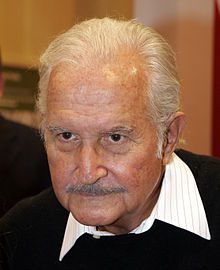 Carlos Fuentes
Carlos Fuentes
“Writing is a struggle against silence”
Carlos Fuentes Macías was a Mexican novelist and essayist. Among his works are The Death of Artemio Cruz (1962), Aura (1962), Terra Nostra (1975), The Old Gringo (1985) and Christopher Unborn (1987). In his obituary, The New York Times described Fuentes as “one of the most admired writers in the Spanish-speaking world” and an important influence on the Latin American Boom, the “explosion of Latin American literature in the 1960s and ’70s”, while The Guardian called him “Mexico’s most celebrated novelist”. His many literary honors include the Miguel de Cervantes Prize as well as Mexico’s highest award, the Belisario Domínguez Medal of Honor. He was often named as a likely candidate for the Nobel Prize in Literature, though he never won.
Interview: https://billmoyers.com/content/carlos-fuentes/
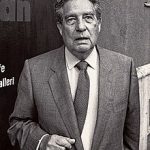 Octavio Paz
Octavio Paz
“Deserve your dream”
Octavio Paz Lozano was a Mexican poet and diplomat. For his body of work, he was awarded the 1981 Miguel de Cervantes Prize, the 1982 Neustadt International Prize for Literature, and the 1990 Nobel Prize in Literature.
In Her Splendor Islanded: https://www.poetryfoundation.org/poetrymagazine/browse?contentId=27687
Wind, Water, Stone: https://www.poetryfoundation.org/poems/58334/wind-water-stone
Julia De Burgos
“Don’t let the hand you hold hold you down.”
Julia de Burgos was a Puerto Rican poet. As an advocate of Puerto Rican independence, she served as Secretary General of the Daughters of Freedom, the women’s branch of the Puerto Rican Nationalist Party. She was also a civil rights activist for women and African/Afro-Caribbean writers.
Short Biography: https://www.poetryfoundation.org/poets/julia-de-burgos
Thorough Biography: https://www.literaryladiesguide.com/author-biography/julia-deburgos/
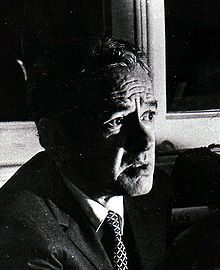 Juan Rulfo
Juan Rulfo
“Nothing can last forever. There isn’t any memory, no matter how intense, that doesn’t fade out at last”
Juan Nepomuceno Carlos Pérez Rulfo Vizcaíno, best known as Juan Rulfo was a Mexican writer, screenwriter and photographer. He is best known for two literary works, El Llano en llamas (1953), a collection of short stories, and the 1955 novel Pedro Páramo. Fifteen of the seventeen short stories in El Llano en llamas have been translated into English and published as The Burning Plain and Other Stories.
Interview: https://youtu.be/g2yvHYVw-EM
Lourdes Casal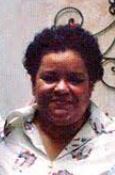
Lourdes Casal was an important poet and activist for the Cuban community. She was internationally known for her contributions to psychology, writing, and Cuban politics. Born and raised in Cuba, she sought exile in New York because of Cuban communist rule. Casal received a master’s degree in psychology in 1962 and later, a doctorate in 1975 from the New School for Social Research. She wrote the book El caso Padilla: literatura y revolucion en Cuba, which illustrated the failing relationship between writers and Cuban officials. A year later, she co-founded a journal named Nueva Generation which focused on creating dialogue on relationships between Cubans living abroad and on the island. Casal earned notoriety by attempting to reconcile Cuban exiles in the United States. She was instrumental in organizing a dialogue between Cuban immigrants and Fidel Castro, which led to the release of thousands of Cuban prisoners. She was the first Cuban-American to receive the Casa de las Américas Prize, which was awarded to her posthumously in 1981.
Biography: https://www.anb.org/view/10.1093/anb/9780198606697.001.0001/anb-9780198606697-e-1603940
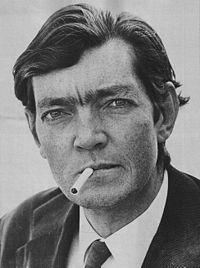 Julio Cortazar
Julio Cortazar
“I think we all have a little bit of that beautiful madness that keeps us walking when everything around us is so insanely sane.”
Julio Cortázar was an Argentine novelist, short story writer, and essayist. Known as one of the founders of the Latin American Boom, Cortázar influenced an entire generation of Spanish-speaking readers and writers in the Americas and Europe. Cortázar wrote numerous short stories, collected in such volumes as Bestiario (1951), Final del juego (1956), and Las armas secretas (1959). In 1967, English translations by Paul Blackburn of stories selected from these volumes were published by Pantheon Books as End of the Game and Other Stories; it was later re-titled Blow-up and Other Stories. Cortázar published four novels during his lifetime: Los premios (The Winners, 1960), Hopscotch (Rayuela, 1963), 62: A Model Kit (62 Modelo para Armar, 1968), and Libro de Manuel (A Manual for Manuel, 1973). Except for Los premios, which was translated by Elaine Kerrigan, these novels have been translated into English by Gregory Rabassa. Two other novels, El examen and Divertimento, though written before 1960, only appeared posthumously.
 Evangelina Vigil-Pinon
Evangelina Vigil-Pinon
Evangelina Vigil-Piñón (born 29 November 1949 in San Antonio, Texas) is a Chicana poet, children’s book author, director, translator, and television personality. She graduated from University of Houston. She studied at St. Mary’s University, and University of Texas at San Antonio. She was assistant editor of Americas Review. She teaches Mexican American and U.S. Hispanic literature as an adjunct lecturer at University of Houston. She currently is a television journalist extensively involved in community affairs with ABC-KTRK TV Channel 13 in Houston, Texas
Isabel Allende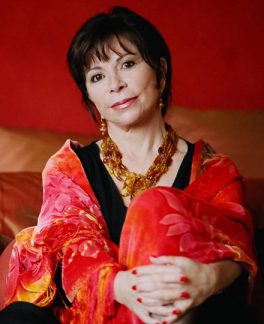
“Write what should not be forgotten.”
Isabel Allende is a Chilean writer. Allende, whose works sometimes contain aspects of the genre magical realism, is known for novels such as The House of the Spirits (La casa de los espíritus, 1982) and City of the Beasts (La ciudad de las bestias, 2002), which have been commercially successful. Allende has been called “the world’s most widely read Spanish-language author.” In 2004, Allende was inducted into the American Academy of Arts and Letters,and in 2010, she received Chile’s National Literature Prize. President Barack Obama awarded her the 2014 Presidential Medal of Freedom.
Ted Talk: https://www.ted.com/talks/isabel_allende_tells_tales_of_passion?language=en
Webpage: https://www.isabelallende.com/
Fabiola Cabeza de Baca Gilbert
Fabiola Cabeza de Baca Gilbert was an American educator, nutritionist, activist and writer. Cabeza de Baca is also known as the inventor of the u-shaped fried taco shell. She was also the first known published author of a cookbook describing New Mexican cuisine.
Biography: https://www.encyclopedia.com/arts/news-wires-white-papers-and-books/cabeza-de-baca-fabiola
Pablo Neruda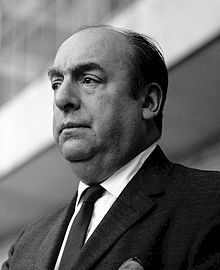
“Love is so short, forgetting is so long.”
Ricardo Eliécer Neftalí Reyes Basoalto was a Nobel Prize winning Chilean poet-diplomat and politician. Neruda became known as a poet when he was 13 years old, and wrote in a variety of styles, including surrealist poems, historical epics, overtly political manifestos, a prose autobiography, and passionate love poems such as the ones in his collection Twenty Love Poems and a Song of Despair (1924). He won the Nobel Prize for Literature in 1971.
Video presentation of poem “Ode to the Watermelon“: https://youtu.be/LRTXVYGqT_k
A Dog Has Died: https://www.poetryfoundation.org/poetrymagazine/poems/40470/a-dog-has-died
The Dictators: https://www.poetryfoundation.org/poetrymagazine/browse?contentId=25874
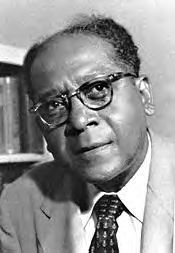 Jesus Colon
Jesus Colon
Jesús Colón was a Puerto Rican writer known as the Father of the Nuyorican Movement. Colón was discriminated against because of the color of his skin (he was of African descent) and because of his difficulty speaking the English language. He wrote about his experiences, as well as the experiences of other immigrants, becoming among the first Puerto Ricans to do so in English. His best known work, A Puerto Rican in New York, set the stage for the literary movement known as the “Nuyorican Movement”
Biographical Article: https://www.peoplesworld.org/article/jesus-colon-a-puerto-rican-in-new-york/
Photos of Jesus Colon: https://centropr.hunter.cuny.edu/digitalarchive/index.php/Detail/collections/5
Little Things Are Big: https://www.facinghistory.org/resource-library/video/little-things-are-big-jes-s-col-n
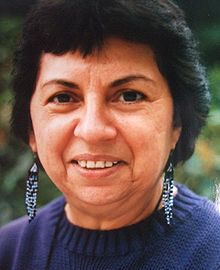 Gloria Anzaldua
Gloria Anzaldua
“Though we tremble before uncertain futures may we meet illness, death and adversity with strength may we dance in the face of our fears.”
Gloria E. Anzaldúa was a queer Chicana poet, writer, and feminist theorist. Her poems and essays explore the anger and isolation of occupying the margins of culture and collective identity. Anzaldúa has been awarded the Lambda Lesbian Small Book Press Award, a Sappho Award of Distinction, and an NEA Fiction Award, among others. She is the author of several books of poetry, non-fiction, and children’s fiction. Her book, Borderlands/La Frontera: The New Mestiza (1987) and her essay, “La Prieta,” are considered to be groundbreaking works in cultural, feminist, and queer theories. With Cherríe Moraga, Anzaldúa co-edited the landmark anthology This Bridge Called My Back: Writings by Radical Women of Color (1981).
Foundation: https://geanzaldua.weebly.com/about-gloria.html
Rudolfo Anaya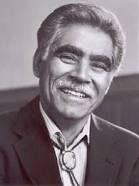
“It is because good is always stronger than evil”
Rudolfo Anaya is an American author. Best known for novel Bless Me, Ultima, Anaya is considered one of the founders of the canon of contemporary Chicano literature. Rudolfo Anaya’s first novel, Bless Me, Ultima, was published in 1972, just as the Chicano Movement was taking root in the national consciousness. This community of Americans of Mexican descent was affirming its unique cultural identity through the cultivation of art, theater, music, and literature. Bless Me, Ultima, a novel about a young boy struggling with competing expectations and values in post-World War II New Mexico, resonated with Chicano readers.
Rudolfo Anaya talking about Bless me Ultima: https://youtu.be/eYDJI1cCFLY
Webpage: https://anaya.unm.edu/
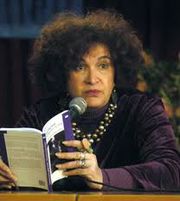 Sherezada Chiqui Vicioso
Sherezada Chiqui Vicioso
Sherezada Chiqui Vicioso is a Dominican writer . Better known by her nickname Chiqui, she studied in the United States and Brazil . Degree in Sociology and History of Latin America from Brooklyn College, New York , Master in Education from Columbia University and Postgraduate in Cultural Administration from the Getúlio VargasFoundation (Brazil). She has been recognized with the Anacaona Gold Award in Literature and the Gold Medal for Merit for Women in 1992 .
 Cristina Garcia
Cristina Garcia
“You have to live in the world to say anything meaningful about it.”
Cristina García is a Cuban-born American journalist and novelist. After working for Time Magazine as a researcher, reporter, and Miami bureau chief, she turned to writing fiction. Her first novel, Dreaming in Cuban (1992), received critical acclaim and was a finalist for the National Book Award. She has since published her novels The Agüero Sisters (1997) and Monkey Hunting (2003), and has edited books of Cuban and other Latin American literature. Her fourth novel, A Handbook to Luck, was released in hardcover in 2007 and came out in paperback in April 2008. In 2009, Garcia was hired as the Visiting Affiliate Professor and Black Mountain Institute Teaching Fellow in Creative Writing at the University of Nevada, Las Vegas. She has taught at other colleges including the University of Texas-Austin, Texas Tech University, and Texas State University-San Marcos, where she is the 2012–14 University Chair in Creative Writing.
Webpage: https://www.cristinagarcianovelist.com/
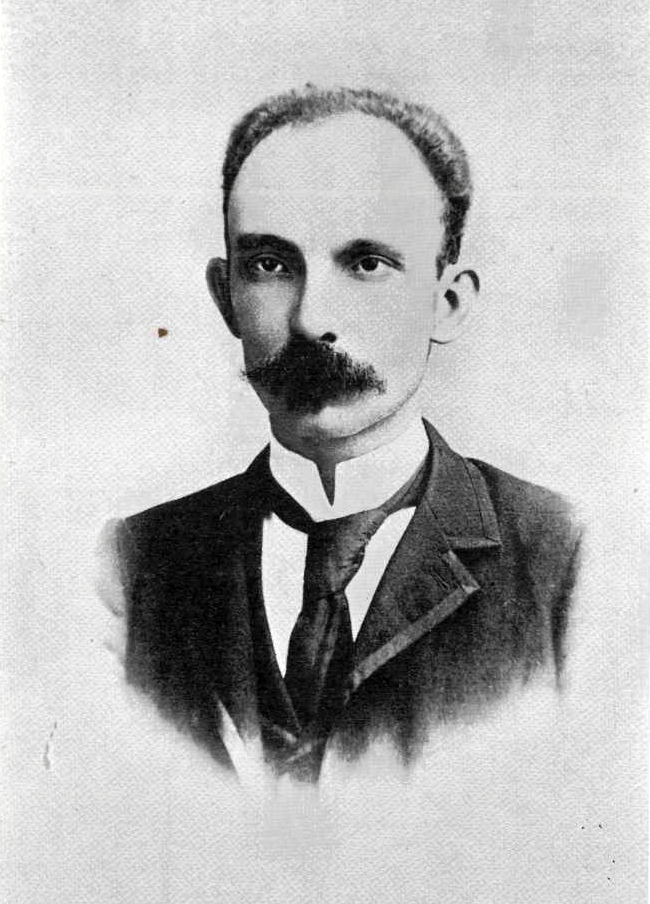 Jose Marti
Jose Marti
“Man loves liberty, even if he does not know that he loves it. He is driven by it and flees from where it does not exist.”
José Julián Martí Pérez was a Cuban poet, essayist, journalist, translator, professor, and publisher, who is considered a Cuban national hero and an important figure in Latin American literature. He was very politically active, and is considered an important revolutionary philosopher and political theorist.Through his writings and political activity, he became a symbol of Cuba’s bid for independence against Spain in the 19th century, and is referred to as the “Apostle of Cuban Independence.” From adolescence, he dedicated his life to the promotion of liberty, political independence for Cuba, and intellectual independence for all Spanish Americans; his death was used as a cry for Cuban independence from Spain by both the Cuban revolutionaries and those Cubans previously reluctant to start a revolt.
La Niña de Guatemala (Verso IX): https://allpoetry.com/La-Nia-de-Guatemala-(Verso-IX)
A Sincere Man Am I (Verse I): https://allpoetry.com/A-Sincere-Man-Am-I–(Verse-I)
Dos Patrias: https://allpoetry.com/Dos-Patrias
 Juan Felipe Herrera
Juan Felipe Herrera
“What are you going to do with all this life”
Juan Felipe Herrera (born December 27, 1948) is a poet, performer, writer, cartoonist, teacher, and activist. Herrera was the 21st United States Poet Laureate from 2015 to 2017.Herrera’s experiences as the child of migrant farmers have strongly shaped his work, such as the children’s book Calling the Doves, which won the Ezra Jack Keats Book Award in 1997. Community and art have always been part of what has driven Herrera, beginning in the mid-1970s, when he was director of the Centro Cultural de la Raza, an occupied water tank in Balboa Park that had been converted into an arts space for the community. Herrera’s publications include fourteen collections of poetry, prose, short stories, young adult novels and picture books for children, with twenty-one books in total in the last decade. Herrera was awarded the 2008 National Book Critics Circle Award in Poetry for Half the World in Light. In 2012, he was appointed California Poet Laureate by Gov. Jerry Brown.
Almost Livin’ Almost Dyin’: https://www.poetryfoundation.org/poems/91750/almost-livin39-almost-dyin39-
Poets Role: https://youtu.be/VG_83jWviAs
 Alma Luz Villanueva
Alma Luz Villanueva
Alma Luz Villanueva is a Mexican-American poet, short story writer, and novelist. She taught at University of California Santa Cruz, Cabrillo College, Naropa Institute, Mesa College, University of California, San Diego, Stanford University, Pacific University. She teaches at Antioch University Los Angeles in the MFA in Creative Writing Program, for the past fourteen years as of 2012. She lives in San Miguel de Allende, Mexico.
Website: http://www.almaluzvillanueva.com/
Indian Summer Ritual: https://poets.org/poem/indian-summer-ritual
 Alicia Gaspar De Alba
Alicia Gaspar De Alba
“There are always four choices to every decision: the wise choice, the foolish choice, the safe choice and the choice that someone else makes for you.”
Alicia Gaspar de Alba is a scholar, cultural critic, novelist, and poet whose works include historical novels and scholarly studies on Chicana/o art, culture and sexuality. Gaspar de Alba has published extensively, and her novels, stories, and poetry have won several literary awards.Her doctoral dissertation “Mi Casa Es Su Casa: The Cultural Politics of Chicano Art” won the 1994 Ralph Henry Gabriel American Studies Association Award. Her work has been published in several languages and focuses primarily on gender and sexuality. Her 2005 novel Desert Blood: The Juárez Murders won the Lambda Literary Award for Best Lesbian Mystery Novel and the Latino Book Award for Best Mystery Novel.
UCLA Page: https://chavez.ucla.edu/person/alicia-gaspar-de-alba/
Webpage: https://www.aliciagaspardealba.net/
 Jimmy Santiago Baca
Jimmy Santiago Baca
“It’s the process of making-do, of the life I’ve lived between breakdowns and break-ups, that has made life worth living. I could not bear a life with everything perfect.”
Jimmy Santiago Baca is a Chicano-American poet and writer. Born in 1952 in Santa Fe of Chicano and Apache descent, Jimmy Santiago Baca was abandoned by his parents and at 13 ran away from the orphanage where his grandmother had placed him. He was convicted on drug charges in 1973 and spent five years in prison. There he learned to read and began writing poetry. His semi autobiographical novel in verse, Martin and Meditations on the South Valley (1987), received the 1988 Before Columbus Foundation’s American Book Award in 1989. In addition to over a dozen books of poetry, he has published memoirs, essays, stories, and a screenplay, Bound by Honor (1993), which was made into a feature-length film directed by Taylor Hackford.
Ancestor: https://www.poetryfoundation.org/poems/47532/ancestor
List of other Poems: https://www.poetryfoundation.org/poets/jimmy-santiago-baca
Junot Diaz
Junot Díaz (born December 31, 1968) is a Dominican-American writer, creative writing professor at the Massachusetts Institute of Technology (MIT), and fiction editor at Boston Review. He also serves on the board of advisers for Freedom University, a volunteer organization in Georgia that provides post-secondary instruction to undocumented immigrants. Central to Díaz’s work is the immigrant experience, particularly the Latino immigrant experience. Born in Santo Domingo, Dominican Republic, Díaz immigrated with his family to New Jersey when he was six years old. He earned a Bachelor of Arts degree from Rutgers University, and shortly after graduating created the character “Yunior”, who served as narrator of several of his later books. After obtaining his MFA from Cornell University, Díaz published his first book, the 1995 short story collection Drown.
Website: http://www.junotdiaz.com/
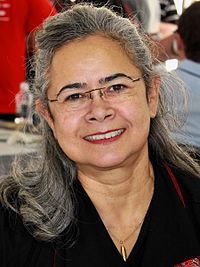 Esmeralda Santiago
Esmeralda Santiago
“How can you know what you’re capable of if you don’t embrace the unknown?”
Esmeralda Santiago is a Puerto Rican author and former actress known for her novels and memoirs. Her writing career evolved from her work as a writer of documentary and educational films. Her essays and opinion pieces have appeared in national newspapers including The New York Times and The Boston Globe, and on mass market magazines like House & Garden, Metropolitan Home, and Good Housekeeping.
New York Time’s Article: https://www.nytimes.com/2019/04/11/books/esmeralda-santiago-lilliam-rivera.html
Website: https://www.esmeraldasantiago.com/
 Ana Castillo
Ana Castillo
“For things to have value in man’s world, they are given the role of commodities. Among man’s oldest and most constant commodity is woman.”
Ana Castillo is a Chicana novelist, poet, short story writer, essayist, editor, playwright, translator and independent scholar. Considered one of the leading voices in Chicana experience, Castillo is known for her experimental style as a Latina novelist. Her works offer pungent and passionate socio-political comment that is based on established oral and literary traditions. Castillo’s interest in race and gender issues can be traced throughout her writing career. Her novel Sapogonia was a New York Times Notable Book of the Year. She is the editor of La Tolteca, an arts and literary magazine. Castillo held the first Sor Juana Inés de la Cruz Endowed Chair at DePaul University. She has attained a number of awards including an American Book Award from the Before Columbus Foundation for her first novel, The Mixquiahuala Letters, a Carl Sandburg Award, a Mountains and Plains Booksellers Award, a fellowship from the National Endowment for the Arts in fiction and poetry and in 1998 Sor Juana Achievement Award by the Mexican Fine Arts Center Museum in Chicago
Webpage: http://www.anacastillo.net/
 Piri Thomas
Piri Thomas
“The cruelest prison of all is the prison of the mind.”
Piri Thomas was a Puerto Rican-Cuban writer and poet whose memoir Down These Mean Streets became a best-seller. In 1967, Thomas received funds from the Rabinowitz Foundation to write and publish his best-selling autobiography Down These Mean Streets. The book describes his struggle for survival as a Puerto Rican/Cuban born and raised in the barrios of New York. It has been in print for 52 years. His other works include Savior, Savior Hold My Hand; Seven Long Times; and Stories from El Barrio.
Biographical Article: https://www.blackpast.org/african-american-history/thomas-piri-1928/
Interview: http://www.inmotionmagazine.com/ptinter1.html
 Victor Villasenor
Victor Villasenor
“The beginning of all wisdom is to understand that you don’t know. To know is the enemy of all learning. To be sure is the enemy of wisdom.”
Victor Villaseñor is a Mexican-American writer, best known for the national bestselling book Rain of Gold. Villaseñor’s works are often taught in American schools. He went on to write Thirteen Senses: A Memoir (2001), a continuation of Rain of Gold. His book Burro Genius: A Memoir (2004) describes his life. The author has received awards and endorsements, including an appointment to serve as the founding Steinbeck Chair at Hartnell College and the National Steinbeck Center in Salinas, from February 2003 to March 2004.
Web page: https://www.victorvillasenor.com/
Judith Ortiz Cofer
“Without you, I am an empty place where spiders crawl and nothing takes root.”
Judith Ortiz Cofer was a Puerto Rican American author. Her critically acclaimed and award-winning work spans a range of literary genres including poetry, short stories, autobiography, essays, and young-adult fiction. Ortiz Cofer was the Emeritus Regents’ and Franklin Professor of English and Creative Writing at the University of Georgia, where she taught undergraduate and graduate creative writing workshops for 26 years. In 2010, Ortiz Cofer was inducted into the Georgia Writers Hall of Fame, and in 2013, she won the University’s 2014 Southeastern Conference Faculty Achievement Award. In her work, Ortiz Cofer brings a poetic perspective to the intersection of memory and imagination. Writing in diverse genres, she investigated women issues, Latino culture, and the American South. Ortiz Cofer’s work weaves together private life and public space through intimate portrayals of family relationships and rich descriptions of place. Her manuscripts and papers are currently housed at the University of Georgia’s Hargrett Rare Book and Manuscript Library.
El Olvido: https://www.poetryfoundation.org/poems/54128/el-olvido
Women Who Love Angels: https://www.poetryfoundation.org/poems/57667/women-who-love-angels
Saint Rose of Lima: https://www.poetryfoundation.org/poems/57666/saint-rose-of-lima
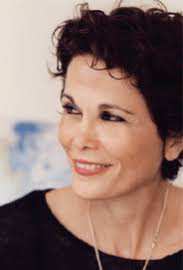 Julia Alvarez
Julia Alvarez
“The point is not to pay back kindness but to pass it on.”
Julia Alvarez is a Dominican-American poet, novelist, and essayist. She rose to prominence with the novels How the García Girls Lost Their Accents (1991), In the Time of the Butterflies (1994), and Yo! (1997). Her publications as a poet include Homecoming (1984) and The Woman I Kept to Myself (2004), and as an essayist the autobiographical compilation Something to Declare (1998). Many literary critics regard her to be one of the most significant Latina writers and she has achieved critical and commercial success on an international scale.
Website: https://www.juliaalvarez.com/
Heroics: https://www.poetryfoundation.org/poetrymagazine/browse?contentId=35138
New Clothes: https://www.poetryfoundation.org/poetrymagazine/browse?contentId=35139
 William Carlos Williams
William Carlos Williams
“In summer, the song sings itself.”
William Carlos Williams was an American poet and physician closely associated with modernism and imagism. In addition to his writing, Williams had a long career as a physician practicing both pediatrics and general medicine. He was affiliated with Passaic General Hospital, where he served as the hospital’s chief of pediatrics from 1924 until his death. The hospital, which is now known as St. Mary’s General Hospital, paid tribute to Williams with a memorial plaque that states “we walk the wards that Williams walked”
Summer Song: https://www.poetryfoundation.org/poetrymagazine/browse?contentId=13517
A Cold Front: https://www.poetryfoundation.org/poetrymagazine/browse?contentId=22429
Autumn: https://www.poetryfoundation.org/poetrymagazine/browse?contentId=21820
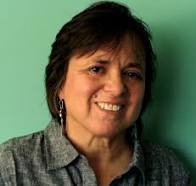 Cherrie Moraga
Cherrie Moraga
“Don’t let the past steal your present.”
Cherríe Moraga is a Chicana writer, feminist activist, poet, essayist, and playwright. She is part of the faculty at the University of California, Santa Barbara in the Department of English. Moraga is also a founding member of the social justice activist group La Red Xicana Indígena which is an organization of Xicanas fighting for education, culture rights, and Indigenous Rights. Moraga has been creditedas one of the few writers to write and introduce the theory of Chicana lesbianism.Themes in her writing include the include the intersections of gender, sexuality, and race, particularly in cultural production by women of color. Moraga’s work was featured in tatiana de la tierra’s Latina lesbian magazine Esto no tiene nombre, which sought to inform and empower Latina lesbians through the work of writers like Moraga.[9]
Website: https://cherriemoraga.com/
Lorna Dee Cervante
“I loved you with the scientific excuse of the lonely.”
Lorna Dee Cervantes is an award-winning Chicana poet and activist, who is considered one of the greatest figures in Chicano poetry. She has been described by Alurista, as “probably the best Chicana poet active today.” Cervantes considers herself “a Chicana writer, a feminist writer, a political writer” (Cervantes). Her collections of poetry include Emplumada, From the Cables of Genocide, Drive: The First Quartet and Ciento: 100 100-Word Love Poems, and Sueño: New Poems, are held in high esteem and have attracted numerous nominations and awards.
Emplumada: https://www.poetryfoundation.org/poems/50119/emplumada
Helena Maria Viramontes
“No sense in talking tough unless you do it.”
Helena Maria Viramontes is an American fiction writer and professor of English. Her short stories have been published in a variety of literary journals. The major themes of her stories are informed by her childhood experiences in East Los Angeles, and the impact of César Chávez and the United Farm Workers on the life of her family. Many of her works feature strong female characters, and child protagonists figure prominently into her work. Other works have been deemed “democratic novels”, in that no single protagonist dominates the storyline. Throughout all of her work, a love of life and of all of humanity pervades, despite poverty and the other challenges her characters face.
Cornell University Page: https://english.cornell.edu/helena-mar%C3%ADa-viramontes
Josefina Lopez
“I was always told Oh you have such a beautiful face but if you lost twenty pounds you’d be very beautiful. And I always wanted to say %$#% you! Because beauty isn’t about your weight it is about your essence.”
Josefina López is a Chicana playwright, perhaps best known as the author of the play (and co-author of the screenplay) Real Women Have Curves. López is also the Founding Artistic Director of the CASA 0101 theater located in Boyle Heights, CA, which began in 2000. After having over 100 productions of her plays throughout the United States, Josefina López is one of today’s preeminent Chicana writers. She has written several plays such as Simply Maria, Or the American Dream; Confessions of Women From East L.A.; Boyle Heights; Lola Goes To Roma; Food For The Dead; Unconquered Spirits; Queen of the Rumba and Real Women Have Curves.
IMDb: https://www.imdb.com/name/nm1058851/
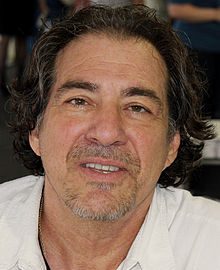 Dagoberto Gilb
Dagoberto Gilb
“My favorite ethnic group is smart.”
Dagoberto Gilb is an American writer who writes extensively about the American Southwest. Gilb was born in Los Angeles in 1950. He attended the University of California, Santa Barbara, where he earned both bachelor’s and master’s degrees. Gilb embarked on a career in construction, became a journeyman carpenter, and joined the United Brotherhood of Carpenters and Joiners in Los Angeles. Gilb has also worked on a few movies and documentaries and spent several years writing commentaries which aired on the NPR show Fresh Air. In 1997, he accepted a job teaching in the MFA program at Southwest Texas State University, now Texas State University. In September 2009, Gilb joined the faculty of the University of Houston–Victoria as a Writer-in-Residence and Executive Director of Centro Victoria: Center for Mexican American Literature and Culture.
Article: https://www.texasmonthly.com/articles/dagoberto-gilb-returns-to-writing-after-his-stroke/
Luis Alberto Urrea
“Death is alive, they whispered. Death lives inside life, as bones dance within the body. Yesterday is within today. Yesterday never dies.”
Luis Alberto Urrea is a Mexican American poet, novelist, and essayist. In all, more than 100 cities and colleges have chosen Into the Beautiful North, The Devil’s Highway or The Hummingbird’s Daughter (or another Urrea book) for a community read. After serving as a relief worker in Tijuana and a film extra and columnist-editor-cartoonist for several publications, Urrea moved to Boston where he taught expository writing and fiction workshops at Harvard. He also taught at the University of Louisiana-Lafayette.
Website: http://luisurrea.com/
Francisco Alarcon
“I carry my roots with me all the time rolled up, I use them as my pilllow.”
Francisco Xavier Alarcón was a Chicano poet and educator. He was one of the few Chicano poets to have “gained recognition while writing mostly in Spanish” within the United States. His poems have been also translated into Irish and Swedish.He made many guest appearances at public schools so that he could help inspire and influence young people to write their own poetry especially because he felt that children are “natural poets.”
Jaguar: https://www.poetryfoundation.org/poems/91106/jaguar
 Jaime Hernandez
Jaime Hernandez
I’ve been a fan of superheroes since I was a kid. I believe superheroes belong in their own silly world”
Jaime Hernandez is the co-creator of the alternative comic book Love and Rockets with his brothers Gilbert and Mario. Hernandez has been praised for the physical beauty of his female characters as well as their complex personalities, and for years he struggled to create comparably nuanced male characters. Hernandez has often said that Maggie and Ray Dominguez both represent different aspects of his own personality.
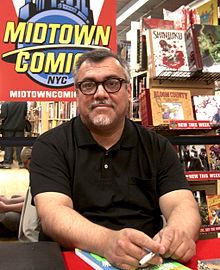 Gilberto Hernández
Gilberto Hernández
“I don’t feel so sad when somebody dies, Julio, because they fly away to explore the stars and planets. When it’s our turn we join them in exploring the universe.”
Gilberto Hernández, usually credited as Gilbert Hernandez and also by the nickname Beto, is an American cartoonist. He is best known for his Palomar/Heartbreak Soup stories in Love and Rockets, an alternative comic book he shared with his brothers Jaime and Mario. Hernandez has said that, at a young age, he was particularly enamored with superhero comics—particularly 1960s Marvel Comics artists such as Jack Kirby’s work on Fantastic Four and Steve Ditko, and the cartoony art of DC Comics artists such as Carmine Infantino and Dick Sprang. He also said he drew a large influence from humorously exaggerated, naturalistic artists such as Dan DeCarlo, Harry Lucey and Bob Bolling’s work on various Archie Comics titles. He was impressed by the longer, “epic” stories he found, for example, in Classics Illustrated, or in issue #2 of Charlton Premiere Comics



